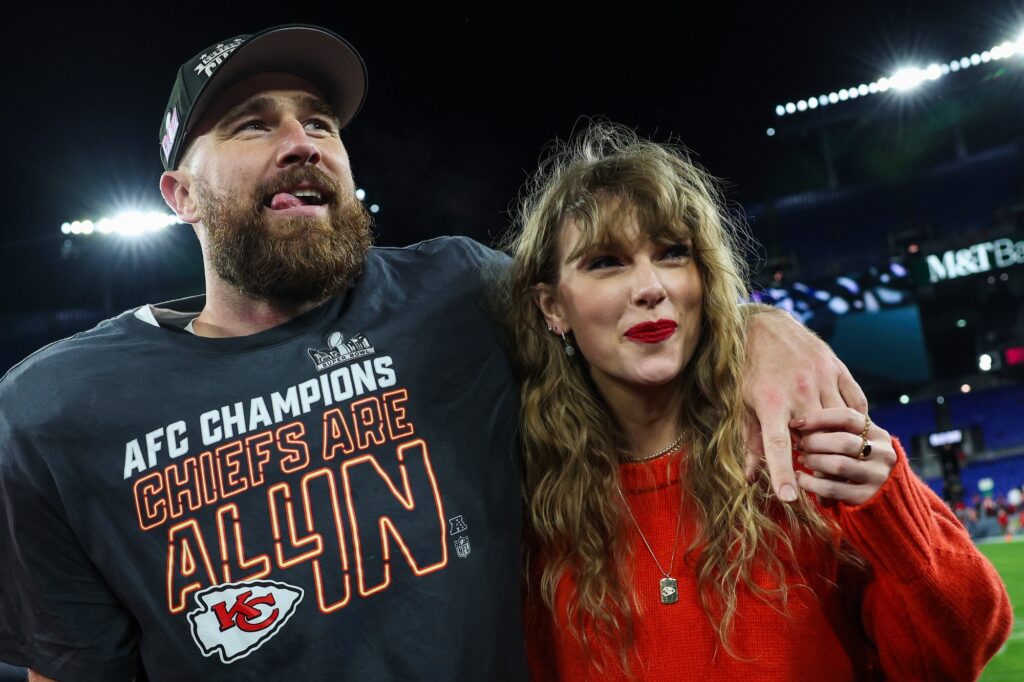Welcome back to the GME3! This week we’re looking at some major developments in the Canadian registered gambling landscape, an update to the ongoing social media lawsuit in Ohio, and a unique betting opportunity that some sports fans took advantage of this past Super Bowl weekend. Read on below!
Gambling
Who’s the Next Contestant?
ICE 2024 is over! We hope that you enjoyed your time at the conference if you attended (or enjoyed your networking-free time if you didn’t). Among all the panel discussions and PowerPoint presentations, we received some interesting news about the future of registered iGaming in Canada.
Dale Nally, the Provincial Minister of Service Alberta and Red Tape Reduction, attended ICE and took part in a Canadian roundtable. As part of the discussion, Minister Nally announced that the province is working on implementing its own provincial iGaming policy.
So it appears that Alberta will be the first province to follow in Ontario’s footsteps. Nally was in full-on sales mode, pitching Alberta as a haven for igaming operators due to lower taxes. Nally reportedly met with a few operators at the conference. Our friends at Gaming News Canada reached out for comment from Nally and received the following:
“Alberta can be a leading hub for iGaming, with a strong emphasis on openness and a free market. We have low corporate taxes, streamlined regulations and high disposable incomes. These conditions will allow us to establish ourselves as a premier destination for the iGaming industry.”
We’ll have to wait and see how Alberta approaches implementing the new regime, and while Nally was light on the details at ICE, the provincial budget to be released before the end of February should shed some light on the plans moving forward.
On the other end of the igaming spectrum, Quebec has doubled (or tripled?) down on refusing to enact its own registered gaming regime. In an article published last week, Quebec finance minister Eric Girard said that the province has “zero interest” in providing licensing for gambling or sports betting platforms. Girard continued to argue that, in Ontario, the changes have led to overexposure to gambling through ads, which in turn leads to more problem gambling occurring.
We will have to wait and see which approach is better. While licensed igaming has led to a tax windfall in Ontario, we’ve indeed been subjected to a high volume of advertisement (so much that the AGCO had to revise their marketing standards, which we wrote about earlier this week). Either way, we here at GME Law are excited to see how Alberta shapes up over the coming year.
Media
Ohio Puts the “L” in Law
An Ohio law seeking to grant greater parental control over kids’ social media access has been temporarily blocked by a federal judge, based on the argument that it likely violates the Constitution. The law would require social media platforms to obtain parental consent before creating an account for someone under the age of 16.
Judge Algenon Marbley had this to say when he delivered his temporary ruling: “Foreclosing minors under sixteen from accessing all content on websites that the Act purports to cover, absent affirmative parental consent, is a breathtakingly blunt instrument for reducing social media’s harm to children.”
Marbley argued that this measure is unlikely to even be effective, even calling the approach “untargeted.” The argument is that requiring one-time parental consent before account creation will do very little to protect minors from the dangers that social media could pose once that account is active.
This is a major blow to the ongoing campaign against social media platforms in the US. Many states currently have ongoing lawsuits against major social media companies like Meta and X. This ruling highlights how instituting new laws around social media use will be an uphill legal battle that could take a significant amount of time to resolve. NetChoice, the online trade association behind the challenge to the Ohio law and several others in Arkansas, California, and Utah, likely sees this as a huge win.
Entertainment
All In On Swift
Super Bowl LVIII has come and gone, and the event drew football fans across the world to sports betting apps. While the major platforms have yet to reveal the metrics on the total amount wagered over the big game, the popularity of the event led some operators to come up with some creative proposition bets. Most interestingly, a slew of prop bets surrounding pop star Taylor Swift flooded some platforms.
Since officially announcing her relationship with Kansas City tight end Travis Kelce, Swift has been seen attending his games throughout the regular season. This has led to increased popularity for the team (and arguably the NFL as a whole), who have taken the initiative to capitalize on Swift’s celebrity.
BetOnline.ag was one platform that took advantage of Swift’s attendance at the Super Bowl this past weekend, creating 89 prop bets (in reference to her album, 1989) covering a variety of different topics. Some included:
What sort of outfit will Taylor Swift wear to the game on Sunday?
What shade of lipstick will she choose for the game?
Will the CBS broadcast show her holding a beverage or giving high-fives?
Will she cry if the Kansas City Chiefs lose to the San Francisco 49ers?
Super Bowl LVIII was already forecasted to be a record-setting event in terms of betting, and the sportsbooks’ willingness to capitalize on social media trends would have elevated that even further.
We’ll be keeping an eye out for news on whether the betting platforms reached their goals for this event, so be sure to follow GME Law on LinkedIn for future updates
GME Law is Jack Tadman, Zack Pearlstein, Lindsay Anderson, Daniel Trujillo, and Will Sarwer-Foner Androsoff. Jack’s practice has focused exclusively on gaming law since he was an articling student in 2010, acting for the usual players in the gaming and quasi-gaming space. Zack joined Jack in September 2022. In addition to collaborating with Jack, and with a keen interest in privacy law, Zack brings a practice focused on issues unique to social media, influencer marketing, and video gaming. Lindsay is the most recent addition to the team, bringing her experience as a negotiator and contracts attorney, specializing in commercial technology, SaaS services, and data privacy.
At our firm, we are enthusiastic about aiding players in the gaming space, including sports leagues, media companies, advertisers, and more. Our specialized knowledge in these industries allows us to provide tailored solutions to our clients’ unique legal needs. Reach out to us HERE or contact Jack directly at jack@gmelawyers.com if you want to learn more!
Check out some of our previous editions of the GME3 HERE and HERE, and be sure to follow us on LinkedIn to be notified of new posts, keep up to date with industry news, and more!




